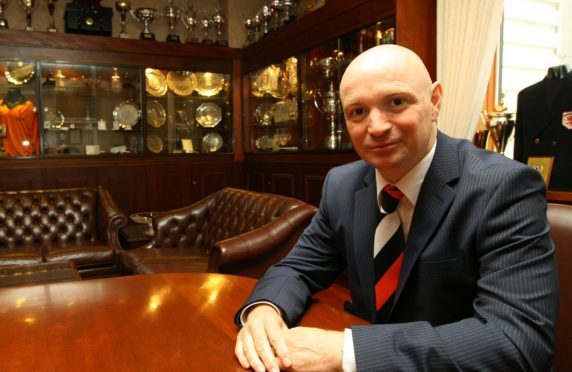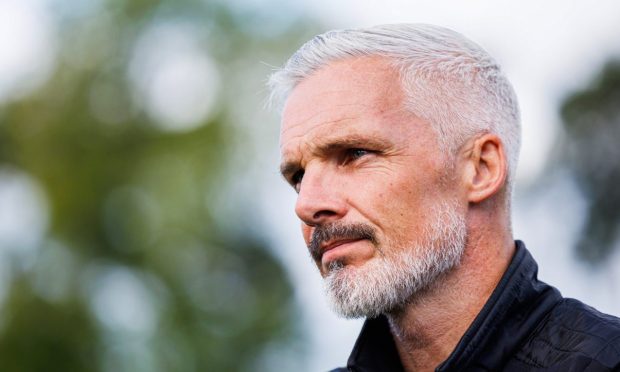Stephen Thompson the Dundee United chairman, has a skin like a rhinoceros, so the notion that fan pressure finally broke his willpower, when he announced he would stand down at the end of the season, is tripe.
A calculated ploy to ensure season book sales is my appraisal of his announcement. Whether it works depends on whether the hopelessly divided Tannadice fans become united.
The militant wing of the support has long agitated for Thompson’s removal, now they smell blood. If they put tactical awareness ahead of personal infighting, they’ll combine forces to try and push him out long before the season finishes.
One man’s truths are another man’s lies. Stephen Thompson feels he’s done his best for Dundee United in his 10 years as chairman, while his critics think he has stripped the club of its major assets: with season ticket sales looming, it’s the fans who for this brief period hold all the aces.
Brian Dempsey’s memorable victory statement outside Parkhead, when Fergus McCann successfully ousted the old Celtic board, said simply, “The battle is over, the rebels have won”.
Those United supporters whose veiled threats to publicly declare a vote of no confidence in Stephen Thompson, may have prodded his resignation initiative: but they may still lose the war.
As I’ve said in this column previously, Thompson is seeking a link up with American investors. He’s made many trips to the U.S. pursuing a deal. The plan is to create a new club in a city with a big Hispanic, football mad population. As yet there is no club, or even a stadium. If it ever comes to fruition, United would form only part of a bigger corporate group, with a chief executive role created for him.
I struggle to see what’s in it for the Americans, but if it happens, it’s a road which potentially leaves United’s identity and future, under the control of external forces.
Stephen Thompson and future chairman Mike Martin, own over 80 per cent of club shares, and can pursue any path they think beneficial to the club. They’re keenly aware though, that organised fans can make enough noise to be heard across the Atlantic. Such noise might make the Americans wonder what they’re getting themselves into.
The various factions of the United support though, spend more time fighting each other than trying to work cohesively. They’re so busy infighting that they’ve offered no credible alternative solution to Thompson’s running of the club.
The people’s front of Judea, or should it be the Judean people’s front, couldn’t hold a candle to some fans, whose hatred of Thompson flecks their mouths with spittle, rendering them incoherent with rage at the mention of his name.
Any suggestion of compromise, the way that most major disputes are settled, is immediately dismissed, with peacemakers labelled as puppets of the regime, or being in Thompson’s pocket.
Now, with possible foreign ownership, those fans can unite and combine their strengths, or continue to cut off their noses to spite their faces. Divide and rule is the oldest tactic in the book. Intelligent fans recognise that, foolish ones don’t.










